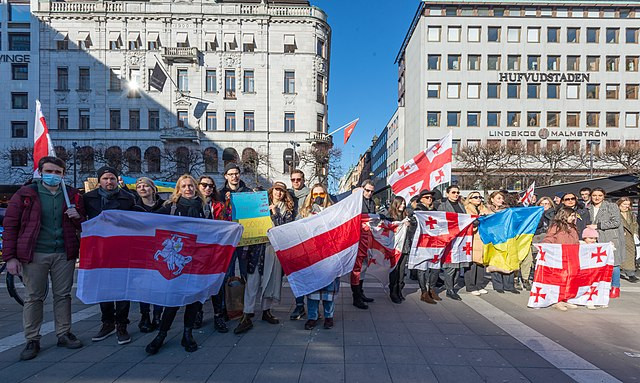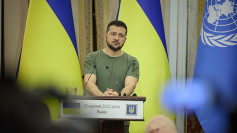Georgia's parliament has approved the first reading of a controversial "foreign agents" bill, which has sparked mass protests and drawn sharp criticism from the European Union, who warn that the legislation could stifle freedoms and jeopardize the country's path to EU membership. The bill, which requires organizations receiving more than 20% of their funding from abroad to register as agents of foreign influence, has been likened to a repressive Russian law used to crack down on dissent.
Amid the ongoing protests, leading players in Georgia's national men's football team have voiced their support for the demonstrations, adding pressure on the ruling Georgian Dream party. Jaba Kankava, the team's captain, posted a picture on Instagram of two protesters staring down riot police, with the caption "Fuck Russia." Other prominent players, including Napoli's Khvicha Kvaratskhelia and Valencia's Giorgi Mamardashvili, shared coordinated messages on social media, stating, "Georgia's path is to Europe. The European way unites us!! Forward to Europe!! Peace to Georgia."
David Kezerashvili, Georgia's former defence minister during the 2008 Russian invasion, highlighted the significance of the footballers' intervention, coming just weeks after millions celebrated the team's historic qualification for Euro 2024. "People understand the economic benefits and freedoms that membership of the European Union would bring to a country like Georgia, and they resent those aspirations being sabotaged," Kezerashvili said. "Seeing police in balaclavas take violent action against well-meaning protesters has dark echoes of Georgia's Soviet past. This is driving a wedge between Tbilisi and Brussels."
Despite the protests and international condemnation, the bill passed its first reading with 83 out of 150 deputies voting in favor. The legislation must pass two more readings before becoming law. Georgian Prime Minister Irakli Kobakhidze has remained defiant, stating that transparency is not a criterion for distinguishing between enemies and friends and that the law is necessary to promote transparency and combat "pseudo-liberal values" imposed from abroad.
The European Commission has strongly condemned the legislation, warning that its adoption would negatively impact Georgia's progress on its EU path and that it is not in line with EU core norms and values. The EU granted Georgia candidate status in December, and the fate of the bill is widely seen as a test of the country's intentions to pursue Western integration or move closer to Russia.
Georgian President Salome Zurabishvili, who is at odds with the ruling party, has offered her support to the protesters and denounced the bill as a "Russian strategy of destabilisation." She has vowed to veto the law if it is passed, although parliament has the power to override her veto.
The Kremlin has denied any involvement in the legislation, with spokesperson Dmitry Peskov describing it as "normal practice" for a government seeking to protect itself from outside influence. Peskov claimed that the law is being used to provoke anti-Russian sentiments and that these impulses are likely coming from outside Georgia.
As tensions continue to escalate, the ruling Georgian Dream party faces increasing pressure from both domestic and international actors. The footballers' intervention, coupled with the EU's warnings and ongoing mass protests, has added to the growing opposition against the controversial bill.






